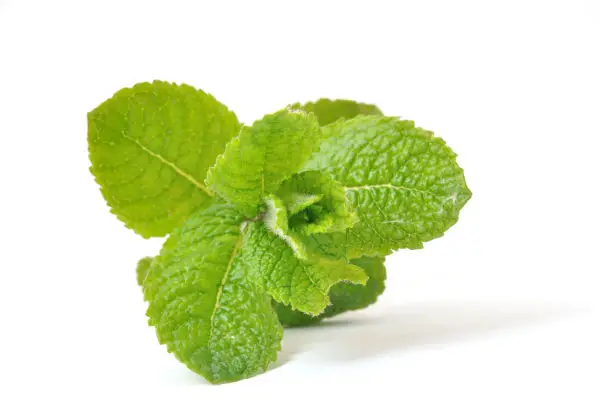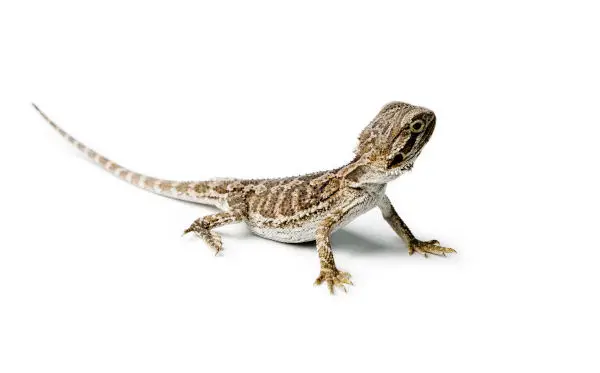Can Bearded Dragons Eat Mint Leaves (Is it safe?)
If you have a Bearded Dragon, you may be wondering if mint leaves is a good idea for his diet. It’s important to get his diet right (Click here to learn the right way to feed him). Let me explain if mint leaves is a good idea.
Can bearded dragons eat mint leaves? Yes, Bearded Dragons can eat mint leaves, but it should be more of a treat rather than a regular offering. This is because it has limited nutritional benefits and over 80% water.
| Are these foods dangerous for your Beardie? | |
| Avacado? Click here to learn, from this guide, if this food is dangerous |  |
| Superworms? Click here to learn, from this guide, if this food is dangerous |  |
Now that you know that mint leaves can be eaten, let me explain exactly what their nutritional benefits are, any health benefits they have, potential health risks, and much more. Keep reading…
What is a Mint leaf?

Mint leaves
Before I can explain if Bearded Dragons can eat mint leaves, it’s important to understand exactly what they are, without making any assumptions. Yes, I agree that most people know what they are, but do you know what their scientific genus is, or native origins? Well, if not, I will explain more now.
According to Wikipedia, Mentha, or Mint, as we commonly know it as is a genus of plants. There are approximately 20 or so of these plants in the genus. One of the more common ones is called the peppermint. A cup of peppermint tea, anyone?
It is part of the Lamiaceae family and is typically found in many places, including Europe, Africa, Australia, Asia, and North America. It is a perennial plant, which is a term used for plants that typically live for more than two years.
The leaves of these plants are commonly known as Mint leaves.
What are the nutritional benefits of mint leaves?
Have you ever heard of the term “a picture paints a thousand words”? Well, similar to a picture, a table also does the wonders. For that reason, in this section, I will provide you with a table that will provide nutritional information about mint leaves.
Source: Medical News Today (Based on 3.2g serving)
| Name | Amount | Unit |
| Calories | 2.24 | Kcal |
| Protein | 0.12 | g |
| Carbs | 0.48 | g |
| Fat | 0.03 | g |
| Fiber | 0.26 | g |
Should you give Beardies Eat Mint Leaves?
Earlier, I briefly explained that you can give Bearded Dragons mint leaves. But, with that said, just because you can, should you be offering them it? Let me explain further.
The short answer is, not really. later on, I will explain in more detail why I say this. But, the long and short of it is, why bother when there is so many other nutritional plant-based alternatives? Such as bananas (Click here to see if they are a good idea).
The reality is, when you look at the table above, there is very little nutritional benefits to offer, right?
In the following sections, I will explain the potential health benefits ad risks of feeding this to your Beardie.
Any health benefits of Bearded Dragons eating mint leaves?
I understand that it may not have many nutritional benefits, but can mint leaves offer any health benefits for your Bearded Dragon? Read on while I explain in this section.
Soothing herb
For us humans, mint is typically seen as a good thing, whether that is right or not, it is just seen that way. It is known as a soothing herb in some cultures and is often consumed to help with stomach aches.
With that aside, just for general enjoyment, there is a large number of people that enjoy it in the form of herbal tea. Mint in the form of herbal tea is quite a popular choice in supermarkets.
Other known benefits are its antioxidant and anti-inflammatory benefits, which is due to its rosmarinic acid.
Traces of vitamin C
It does have some traces of vitamin C. Vitamin C is an important part of your Beardies diet. In fact, according to VCA Hospitals, a lack of vitamin C can lead to deficiencies.
These deficiencies can have unsavory symptoms, such as bruising, skin separation or tearing, or even diarrhea. However, this would be expected in more extreme circumstances.
Although mint leaves do have some vitamin C, the reality is, it is only really a trace. And, really not a suitable source for your Beardie to rely on.
Are there any issues with Beardies eating mint leaves?
Now that you understand that there are some, albeit minimal, health benefits of your Beardie eating Mint leaves. What about any potential health issues? In this section, I will explain some of these potential issues.
High Water Content
One of the issues with mint leaves is, it has high water content. In fact, it is approximately 85% water. So, not only is it not providing much nutrition, if it is consumed in a high quantity, it could lead to diarrhea.
Low in calcium
For reptiles in general, calcium is an important part of their diet. They get this calcium for their food or supplementation. So, it’s not ideal that mint only really has traces of calcium.
Also, when you consider calcium, it is important to look at the phosphorus level as well. This attaches to calcium and stops your Beardie absorbing it. So, it is important to maintain high calcium to phosphorus ration to combat this. According to Vetstream, this should be about 2:1.
Mint leaves only have a trace of phosphorous so it’s not easy to measure this.
It can Trigger GERD
Some people say that mint can trigger gastroesophageal reflux disease (GERD) in us humans. GERD is known to cause acid reflux or heartburn. A lot of pregnant women often get this. So, as you can imagine, it is not a nice thing to have.
I haven’t seen this proven concerning Bearded Dragons, but it is another reason to question if you should even be considering giving it to him, are you with me?
Excessive use of peppermint oil
Peppermint oil, or extract as it is also known as is made from the essential oils of peppermint oils. There are various claimed health benefits with this, but one thing to note, too much of this stuff is known to be toxic.
Pure Menthol
According to Wikipedia, pure menthol is an organic compound gathered from the oil of corn mint, peppermint, or other mints. However, it can also be synthesized is laboratories. You may have heard of it before?
Either way, in its pure form it is deemed as poisonous and another example of some of the extreme strength of mints.
Should a Baby or Juvenile Beardie eat Mint Leaves?

Baby Bearded Dragon
If you have a freshly hatched Bearded Dragon, you may be keen to understand what you can and cannot feed him, in particular, where you stand with baby Beardies and mint leaves. For that reason, in this section, I will explain if it is a good idea or not.
While Bearded dragons are young babies it is important to provide the best possible nutritious diet. This should consist of insects as well as plant-based ingredients (with the majority of those being veg).
With that being said, the fact that mint leaves offer very little nutritional value, I would avoid them, are you with me? If you are adamant that you want to do it, it should be a treat at best.
How should you prepare mint leaves for them?
Now that you understand the nutritional benefits and potential health risks. If you still wish to serve them up, you need to understand the best way to do this. For that reason, in this section, I will explain how you can do this.
Combine it
First thing first, the mint leaves are not a meal, they are more of a garnish. So, you need to mix it up with other vegetables. It will represent a small portion of the meal.
No cooking, serve it raw
As you can imagine, your Beardie will want to eat these leaves raw, along with the other veg you serve up. Therefore get all the veg together.
Chop them up.
The next thing you need to do is to chop them up into manageable bit sizes. As a general rule of thumb, do not offer any food to your Beardie that is bigger than the distance between both of his eyes. This will avoid choking.
Once they are all chopped, mix them up together and serve them up.
How often should they consume these mint leaves?
Now that you know how to prepare them, you may be wondering how often you should serve them. For that reason, in this section, I will explain how often you should offer them up.
In my opinion, they should be offered very rarely, I mean once every few weeks, or even less frequent. It’s not a good idea to offer them too regularly.
Related Questions:
In this section, I will answer any questions related to Bearded Dragons’ eating habits and other related behavior traits. If you have more questions feel free to contact me.
Q: Will Bearded Dragons get stressed if you feed them incorrectly?
Yes, there is a good chance that your Beardie will get stressed if you feed him wrong. In fact, you may see some stress marks develop on your Beardie if you neglect this. This is why its important to understand what foods you should be feeding your Beardie (Click here to learn what you should be feeding him).